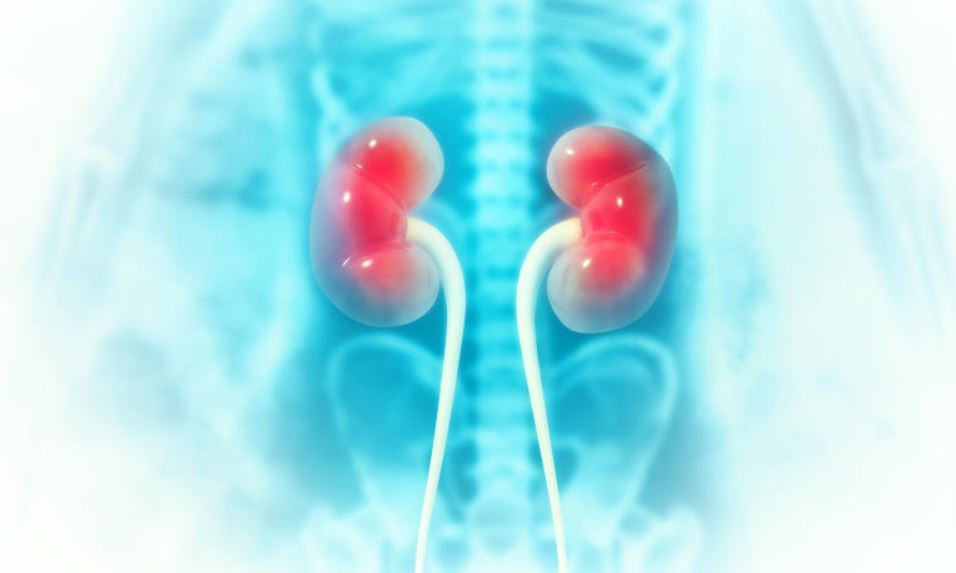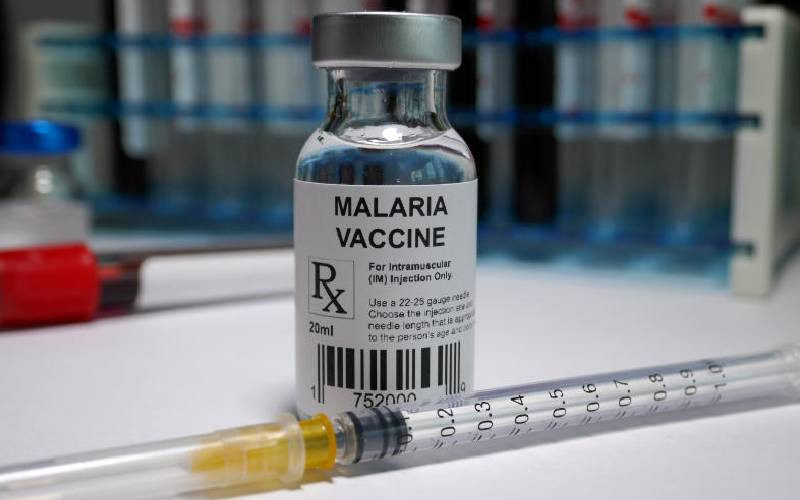
At 11:30 am on a sunny Sunday, we find 41-year-old Ruth Njeri sitting outside her house in Nakuru County's Upendo Estate. She looks jovial as she welcomes us, revealing that she rarely leaves her compound due to her condition.
It has been 28 years since Ruth, a mother of two, has been living with bipolar disorder. Ever since the condition first reared its head in 1996, life has not been easy.
"I was born normal and had a good upbringing. It wasn't until 1996 when I was in Standard 6, that life started sinking. Falling sick now and again became the norm, with difficulty in breathing being my initial sign," Ruth narrates.
She says that her mother took her to various medical facilities in Nakuru to understand what was ailing theirdaughter.
"Back then, we had fewer hospitals. We were referred from one facility to the next and, with every hospital we visited, I got a different diagnosis. I also underwent many tests - from CT scans to blood tests. Very few hospitals were doing these then," Ruth says.
By 1998, the difficulty in breathing was coupled with anxiety and seizures so she was referred to a specialist in Nakuru.
Through the signs Ruth was experiencing, the specialist ruled out that she was suffering from any heart problems. After getting her medication, she returned to school (by then she was in high school). The doctor told them not to worry and that she would recover after three weeks.
- Unmasking the pain behind men's mental health
- Born blue and breathless: An infant's fight for survival, a mother's descent into depression
- Risks of dismissing back pain during pregnancy
- Rare, painful, misunderstood: The medical reality of gigantomastia
Keep Reading
A few days later while in school, she became unconscious -- not once or twice. Her parents were informed of the same by teachers and she was taken back to hospital. No doctor could figure out what was wrong with Ruth but she was put on medication which she defaulted on after a while.
"The medicine was helping me. I stopped taking it because someone advised me to try herbal remedies which didn't help either. Nevertheless, in 2004, I got married and had my first child. Unfortunately, a doctor noted that I was going through postpartum depression, which disturbed me for a while," Ruth says. "I am married to an understanding and supportive husband who is ready to help whenever I am in need. He promised to take me to a facility that would analyse and diagnose what I was suffering from. In 2017, I started experiencing dropper attacks -- I would be well, strong and standing one minute and the next minute, I was down. This is the point we realised something was terribly wrong with me," she narrates.
When they visited a referral hospital in Nakuru, she went through a CT Scan.
"They told me I was having heart problems. It was the second time I had been told something like that. Again, I was put on medication, and we went back home, still going through dropper attacks, which went on for two years," Ruth says.
In 2019, Ruth's husband took her back to the hospital after one of our relatives told them there was a specialist who could help test and diagnose her state.
"I went through all tests including blood tests and CT scans and they didn't find anything," Ruth says. "Then I went through an assessment with a psychiatrist who asked about my symptoms and when I first experienced them. In addition to all the previous symptoms, I was experiencing racing thoughts and depressive episodes. He finally diagnosed me with bipolar disorder."
According to Annita Musyoki, a Clinical Psychologist at The Nairobi West Hospital, bipolar disorder is a mental health condition characterised by extreme mood swings that include emotional highs (mania or hypomania) and lows (depression). It was previously known as manic depression.
Mania is a period of abnormally elevated, extreme changes in your mood or emotions, energy level or activity levels. This highly energised level of physical and mental activity and behaviour must be a change from your usual self and be noticeable by others.
Ms Musyoki explains that there are several types of bipolar disorder; Bipolar I Disorder which is characterised by manic episodes that last at least 7 days or by manic symptoms that are so severe that immediate hospital care is needed.
"Bipolar II Disorder is characterised by a pattern of depressive episodes and hypomanic episodes, but not the full-blown manic episodes that are typical of Bipolar I Disorder finally Cyclothymic Disorder (Cyclothymia) which is characterised by numerous periods of hypomanic symptoms," Ms Musyoki says.
The World Health Organization (WHO) estimates that 1 out of every 4 people in the world will experience a mental health condition in their lifetime -- including depression and anxiety, bipolar disorder, schizophrenia, and substance-induced psychosis.
Trying to understand more about the condition, Ruth asked the psychiatrist about the cause.
"He explained to us that there's no exact cause of bipolar disorder but because mine took long before it was diagnosed, there was a likelihood to be a genetically inherited condition. Back at home, I asked my parents about the same and they finally learned I inherited this from my father's side - two relatives were also suffering from the disorder, " Ruth says.
According to Ms Musyoki, the exact cause of Bipolar Disorder is not known, but it is believed to be a combination of genetic, biological, and environmental factors. Contributing factors may include genetics, abnormal brain structure and function, neurotransmitter imbalance, and stressful life events.
"This disorder can affect anyone but it often develops in late adolescence or early adulthood. It can also affect children and older adults. Individuals with a family history of bipolar disorder are at higher risk, " Ms Musyoki says.
She adds that the signs and symptoms that accompany this disorder range from manic episodes to increased energy, euphoria, racing thoughts, impulsivity, and risky behaviour. Depressive episodes; sadness, hopelessness, changes in sleep and appetite, fatigue, and suicidal thoughts.
Since the diagnosis in 2019, Ruth has been managing the condition with medication. Although the psychiatrist who gave her the diagnosis told her that this condition can only be managed with medication and there's no exact cure, she believes that she will one day recover.
"There is no cure for bipolar disorder, but it can be managed with medications (mood stabilisers, antipsychotics, antidepressants), psychotherapy (such as cognitive-behavioural therapy), and lifestyle changes (regular sleep patterns, stress management). Early diagnosis and intervention are crucial in managing symptoms and improving quality of life," Ms Musyoki clarifies.
Ruth says the condition has affected her life negatively in many ways.
"I can't concentrate. I used to work but I stopped immediately after I was diagnosed because I started getting sick now and again. I often project my anger issues to my children to the point of even abusing them. I only realise I have wronged them later when they tell me. I realise it is not my fault but I try to control it by taking my medication every day," Ruth says.
She says her family has been a strong support system.
"Since I was diagnosed, my husband has been the one who cares for me. He buys my medication, food and our day-to-day necessities and pays rent and school fees for the children. I thank him," Ruth says.
Though she has never faced stigma she is aware that it exists for other people suffering from mental health conditions.
According to Zippora Nyangara, a Nakuru-based psychologist, individuals with bipolar disorder face stigma especially because it is a mood disorder. Stigma, she explains, can come in different ways like discrimination, social exclusion, and negative stereotypes and this could stem from the lack of correct information on bipolar.
"The impacts of the stigma can be overwhelming and could lead to low self-esteem leading to feelings of shame and worthlessness. There are chances of increased stress because of fear of being judged or misunderstood, especially when one has different episodes. Isolation is a common factor either by individuals diagnosed with bipolar disorder as well as withdrawal from the community members who have misinformation on bipolar or who do not understand how to provide support," observes Ms Nyangara.
"There is still a gap in support for individuals with bipolar. We have to, however, admit that access to mental health and psycho-social support is limited due to finances and access to facilities. It is therefore important that the government especially the county government's health sector is devolved to ensure a budgetary allocation for mental health which will see that providers are employed and services provided from Level One," explains Ms Nyangara.
Despite her struggles, Ruth is grateful that she received a diagnosis and was put on treatment, considering many young people remain undiagnosed and untreated, according to a 2020 report by the World Health Organization (WHO).
 The Standard Group Plc is a multi-media organization with investments in media
platforms spanning newspaper print
operations, television, radio broadcasting, digital and online services. The
Standard Group is recognized as a
leading multi-media house in Kenya with a key influence in matters of national
and international interest.
The Standard Group Plc is a multi-media organization with investments in media
platforms spanning newspaper print
operations, television, radio broadcasting, digital and online services. The
Standard Group is recognized as a
leading multi-media house in Kenya with a key influence in matters of national
and international interest.











